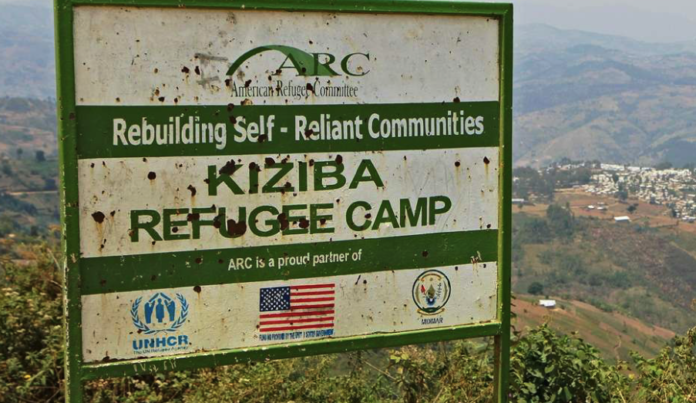By Claude Gatebuke
Three years on, the Rwandan government has failed to release their investigations of intentional shooting of 22 Congolese refugees by the police that occurred in western Rwanda. On February 22, 2018, the Rwandan police fired live bullets on refugees from the Democratic Republic of the Congo (DRC) protesting outside of the United Nations High Commissioner for Refugees (UNHCR) office in Karongi District in Western Rwanda. At least eight refugees were killed immediately. Others died later that day from their injuries.
Since this massacre, authorities have neither revealed how many people were killed nor identified those responsible for using excessive force and hold them accountable. According to our sources in the camps among the refugees, at least 22 were killed.
The protests began after the UNHCR and the World Food Program proclaimed in 2018 that they would cut food rations by twenty percent (25%) due to funding constraints. The affected refugee camps included the Kiziba camp, which hosts over 17,000 Congolese refugees. The protest was due to food allowance had been reduced from Rwf 7,600 (about US$8.90) to Rwf 5,700 (about US$6.70) per person per month. Additionally, they were complaining on how refugees are discriminated on the labor market. Another sensitive reason the refugees protested was to because the government of Rwanda and some officials of UNHCR were committing fraud on resettlement cases that send refugees to other countries, usually much safer and wealthier countries.
Four to five thousands refugees started the protests by walking for several hours to gather outside of the UNHCR office in Karongi district. Police shot one of them to disperse them but the refugees resisted and continued.
A day later, on February 21, area police commissioner Rodgers Rutikanga requested women and children to separate from the men so that they can fight openly, but the refugees refused.
A terribly unforgettable and terrible day for those refugees was February 22 when the police and army special forces encircled the group and started shooting bullets into the crowd of refugees. Eight people died on the spot. After the massacre, scores of refugees were arrested.
Refugees on Trial
The arrested refugees were charged with participating in illegal demonstrations, violence against public authorities, rebellion, and disobeying law enforcement officers.
Three leaders of the refugee camp’s executive committee were also charged with “spreading false information with intent to create a hostile international opinion against the Rwandan state.” All three had signed a letter sent to the UNHCR headquarters in Geneva on January 5, 2018, in which the Executive Committee expressed concern that refugees would be living on “US$0.20 a day” after the cuts and expressed fear that refugees may die of hunger. Among the arrested and imprisoned executive committee members include: former President Maombi Mbangutse Louis and Ayikora Roger, who was in charge of security in the camp.
Three years later, some refugees remain in jail. Meanwhile Kabakura Jean Bosco, a journalist who published an article on the massacre and alerted many of what happened at this protest fled the country because Rwanda’s secret services wanted to kill him. He is currently exiled as a result of shedding light on this massacre. At the same time, the international community, the UN, WFP and other agencies remain eerily silent on the massacre and the fate of those imprisoned since the massacre.
It is high time that the international community acts on this crime, protects the refugees, demands immediate release of those imprisoned and hold accountable Rwandan authorities responsible for these killings. The Kagame regime is literally getting away with murder.
African Great Lakes Action Network (AGLAN) stands in solidarity with the refugees and joins them in demanding accountability.
Claude Gatebuke is a Rwandan genocide and war survivor. He is also the executive director for AGLAN





























































